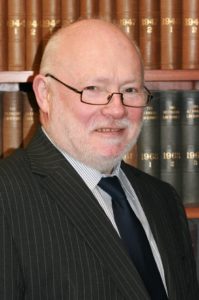We have previously written about the increase in prosecutions over recent years where there is no statement from the alleged victim in the case. The victim might not be supporting the prosecution or may even be unknown. This will lead to arguments over the admissability of evidence.
The reasoning is that even though a victim is unwilling to assist the Prosecution, a person should not be able to avoid responsibility for offending that they have committed. Of course, there are a number of risks to proceeding without evidence from the person who ought to know best what, if anything, happened.
Prosecution rely on principle of Res Gestae
In order to present such cases the prosecution will often rely on a rule of evidence called Res Gestae. This allows hearsay evidence that would usually not be allowed in court to be used as admissable evidence.
You can read more about this rule of evidence here.
Unfortunately we have noted that the prosecution seek to rely on this exception to the usual rules of evidence in a number of cases where it doesn’t apply.
As a result it is vital to have an experienced solicitor who is able to argue your case in Court to try and avoid this from taking place.
Recent case defended by Chesterfield crime solicitor
Chesterfield Crime Solicitor Kevin Tomlinson was recently presented with such a scenario. His experience told him that the prosecution was trying to admit evidence in circumstances where it was not admissible.
His skill and expertise as an advocate persuaded the Magistrates that he was right. The evidence was ruled inadmissible and his client was found not guilty.
Domestic violence allegations
Kevin’s client faced charges of common assault and criminal damage within a domestic setting. Police officers attended the alleged victim who gave an account implicating stating that our client was responsible for the offending.
She alleged that he had been aggressive and threatening towards her when she returned home with a friend after a night out. After the friend left he had then assaulted her in the bedroom and caused damage to a wall and perfume bottle.
The police had obtained a recording of the 999 call. The initial complaint had also been recorded on police bodycam footage. Finally she made a written witness statement. Here friend had also made a statement describing our client’s behaviour before she left.
During the course of the investigation, the complainant had provided a further statement stating that she no longer supported the prosecution and wished to withdraw her complaint.
From the outset of the case our client had set out a defence. He told the police that he had not done what was alleged against him and was therefore not guilty of the offences.
Key witness did not attend the trial
In light of the later statement taken from the complainant it was not surprising that the complainant failed to attend Court for the trial. The supporting witness also failed to attend.
Despite this, the prosecutor informed Kevin that they wished to proceed with the case. They intended to use the account provided by the complainant in the 999 call as well as what she told the police upon their arrival. The reasoning was that this evidence would be admissable using res gestae.
Kevin argued against the admissability of evidence relating to these allegations. The key requirement, that the witness was so overcome with circumstances of the situation that she could not have made the allegations up, did not exist in this case. She was calm during both the call and the conversation. The assertion that the allegation could not have been made up did not stand up to scrutiny.
Additionally, Kevin was able to argue that instead of trying to admit evidence in this way the prosecution, who had known for weeks that the witness did not intend to attend Court, should have taken the appropriate steps to have her there. The doctrine of Res Gestae should not be used to avoid calling witnesses as it prevents the prosecution challenging the evidence.
Not guilty verdict after trial
Kevin’s argument found favour with the Court who refused the Crown’s application meaning the Prosecution had no option but to offer no evidence against Kevin’s client.
This case highlights the importance of instructing a solicitor. It is important that you do not rely on a solicitor appointed by the court as their responsibilities to you in your case are limited.
Had the defendant in this case been unrepresented it might be unlikely that they would effectively challenge the admissability of evidence of this nature and the outcome could have been very different.
Instruct an solicitor who is an expert in the admissability of evidence.
Criminal trials will always feature a certain level of complexity. The best way to prepare for trial is to seek legal advice at the earliest possible moment.
If you are arrested or know that the police wish to speak to you about an offence of then make sure you insist on your right to free and independent legal advice.
The advantages of such early advice legal advice can be found here.
If you have already been interviewed or face court proceedings we can still make a real difference to the outcome of your case. Legal aid may well be available to fund your defence at court.
A further example of a successful argument against the admissability of evidence can be found here.
We have offices across the East Midlands. You can find your most convenient office here. Alternatively you can contact us using the form below.



